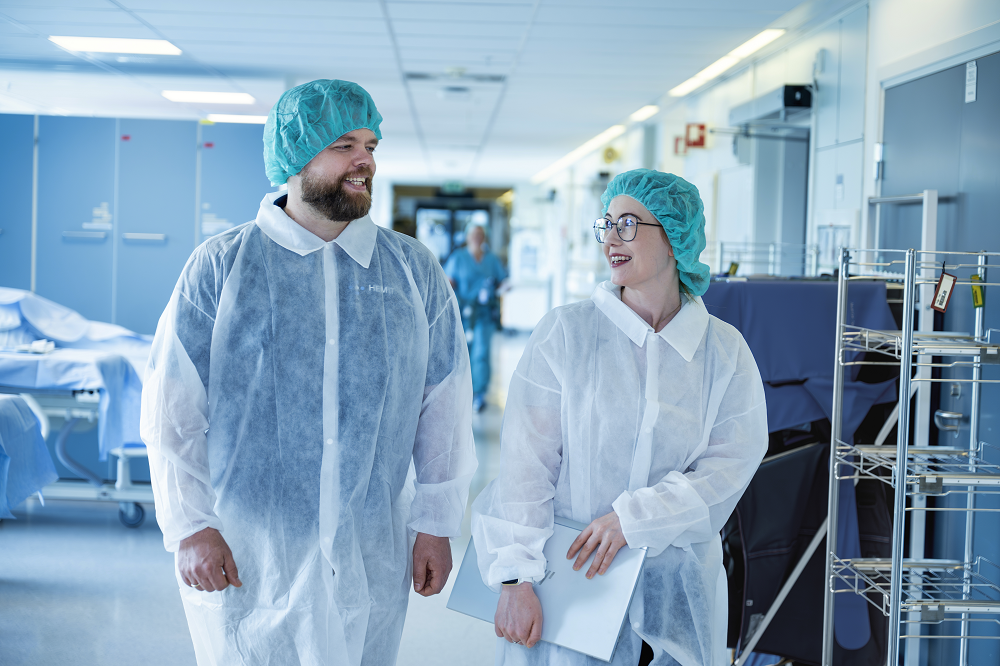
Client:NHS SBS
Industry:Healthcare
Region:Europe
NHS SBS Drives Efficiencies with RPA, Delivering Higher Value Services for Clients

8 weeks
are now necessary to deliver a new robot, down from 16
250+
processes currently handled by robots
<5 hours
required to complete a process that took 40
Client Overview
Established by the UK’s Department of Health and Social Care (DHSC) as a unique joint venture with digital transformation experts Sopra Steria, NHS Shared Business Services (NHS SBS) delivers high-quality and cost-effective corporate services to the NHS. Today the organization provides a mix of Finance & Accounting, Procurement, Employment Services and Innovation & Technology Services to over 100 NHS healthcare providers and arm’s length bodies – and 100% of NHS commissioning organizations.
Partner

NHS SBS is a 'sector' leader regarding RPA maturity. In addition to reducing costs, improving processes, and driving quality, the organization is using automation to broaden the services it provides to the NHS.
Like any public sector organization, NHS SBS is driven to make efficiencies and reduce its costs—savings that can be passed on to its NHS partners. Its strategy is also built on a commitment to transform and innovate for the future. The organization is investing in the very latest digital technologies for the NHS. Robotic process automation (RPA) is a major part of this—providing a platform for NHS SBS to deliver higher value services to NHS organizations across the UK.
Established in 2005, NHS SBS has grown to be one of the largest and most successful shared service centers in the world. Today, it works with around two-thirds of all NHS provider trusts and every clinical commissioning organization in the country—NHS bodies responsible for the planning and commissioning of healthcare services in their local area.
The vision of NHS SBS is to help the NHS save money and enhance quality so it can improve health, innovate to save lives and deliver better patient outcomes. The critical non-clinical services it provides to the NHS are vast in scale, with the organization’s Finance & Accounting Service alone, handling more than seven million accounts payable transactions, managing £225bn cash and recovering £20bn debt for the NHS every year.
Stephen Sutcliffe, Director of Finance and Accounting at NHS SBS, explains: “Our strategy is centered around helping our NHS partners achieve greater efficiencies, save more time and money, and provide a better user experience for their employees than ever before. We aim to be as efficient as possible in everything we do, and RPA has a significant role to play in this. It can carry out the mundane, repetitive tasks no one likes, while improving the accuracy and quality of financial processes. The exciting part is the time it frees to enable us to offer greater value to the NHS organizations that use our services.”
RPA is ‘business as usual’
There are around 850 separate financial processes carried out by NHS SBS, covering reconciliations, cash flow, invoice payment, debt collection, and more. At the beginning of its RPA journey in 2016, the organization identified that almost half of these were suited to automation. Since then, it has completed the development and deployment of an entire eco-system of robots handling over 250 of these processes.
The organization’s first large-scale automation was the maintenance of Cashflow files for all of their 200-plus NHS clients. This daily task, involving gathering data from multiple sources, manipulating spreadsheets and updating databases, needed twenty people and around two hours per person to ensure service levels were maintained.
This was a highly labor-intensive task and an ideal candidate for automation. A robot is now able to achieve this in less than five hours. Crucially, the robot can operate out of normal office hours—able to dynamically scale with demand—and perform to a consistently high standard, so that Cashflows are completed even before employees start work.
The team found that the most important step was adapting the process to the strengths of automation. Stephen explains: “We quickly realised that anything that helps improve the front end of a process is hugely beneficial. Robots don’t make mistakes when inputting the correct data into the correct processes.”
And while their NHS clients have benefitted from increased consistency, NHS SBS has also seen improvements in follow-on processes: “The biggest benefit is downstream because you dramatically reduce the number of issues that can stem from poor information flowing into your systems.”
NHS SBS can now deliver a new robot—or series of robots depending on the complexity of the process – within eight weeks, down from 16 weeks at the start of its journey. It has reached the stage of RPA maturity that represents ‘business as usual’ regarding daily operations.
RPA is just what we do now. We’ve moved it on from its project phase and we’re now looking to manage our RPA capabilities as part of our enterprise-wide IT architecture.
Stephen Sutcliffe • Director of Finance and Accounting, NHS SBS
Achieving RPA at scale
Today, NHS SBS has business analysts working in the UK supported by a development team in India. From initially having robots on individual computers, they’re now all managed centrally using the cloud based UiPath Orchestrator.
The organization took an unusual approach to creating RPA at scale. It didn’t have a pilot phase but went straight to delivering full production automations.
Stephen explains the reason: “It’s easy for people to play at RPA. You can build something on your local machine and that’s fine. You’ll see some benefit.”
“However, if you want to achieve the large-scale impact we’re having then you have to step back and create a clear plan, establish a center of excellence and plot your journey. Identify the painful processes that everyone hates, and you’ll gain employee and customer buy-in. Then ensure that your automation is sustainable and flexible with the correct controls in place.”
One of the key lessons on scaling RPA at NHS SBS was that no automation should be looked at in isolation. To reach across the Finance & Accounting Service, Stephen and his team had to understand how the robots would interact and affect other processes and systems.
Stephen says: “Our first robot was Freddie, the tax robot. Once we had delivered a few large-scales automations, we went back and re-wrote Freddie because we now understood that each robot has to be properly configured to fit seamlessly within your overall IT infrastructure.”
RPA as a service enabler
Thanks to its commitment to investing in and implementing sector-leading RPA, NHS SBS is delivering better and more efficient services to customers. More importantly, for Stephen, the organization is beginning to offer a wider portfolio of services, including expert consultancy and value-add products and services.
RPA is creating virtually touchless processes that frees our staff to begin to have conversations about transforming the way clinicians work and improving patient pathways.
Stephen Sutcliffe • Director of Finance and Accounting, NHS SBS
“That’s really the vision for the finance and accounting function within the NHS and, as an organization, we’re uniquely positioned to deliver on it. The business model ten years ago was primarily around switching to NHS SBS to save money. Our offering today, through technology like RPA, is partner with NHS SBS and we’ll save your organization time and money, but we’ll also deliver world-class technology and digital innovation. That’s not just in the finance space. We’re now expanding our services into patient pathways and other non-clinical activities within our client organizations,” he concludes.
Related case studies
Ready for your own case study?
Speak to our team of knowledgeable experts and learn how you can benefit from agentic automation.






